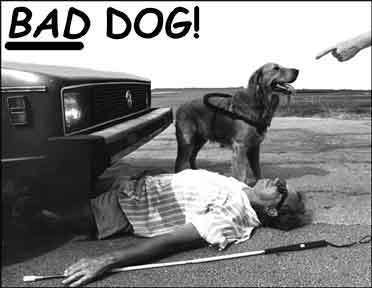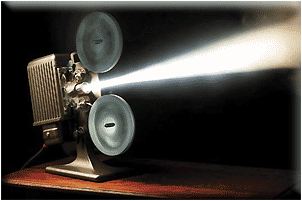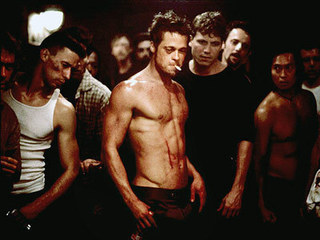Still think your vote doesn’t count? The first presidential election I was ever able to vote in, made a difference. I thought President Carter was a country farmer with little wisdom; I believed Ronald Reagan was an amazing leader/communicator. History has since proven me dead wrong. But at the time I helped vote “image” into office. Soon we returned to our gas guzzling cars; energy conservation was an illusion of the past. AIDS was not mentioned for years as thousands died. My vote counted. (Well at least my karma did not involve voting for Bush)
Here is an article from the Elephant Journal regarding former president Carter and current president elect Barak Obama (and yes, the great communicator too). I never new there were solar panels at the White House at one time! Of course they were dismatled . . . (I wonder where we would be now with about 30 years dedicated to this original direction?). Just part of our Karma (that is, reaping the effects of what we sow – so be careful who you’re angry with – if you haven’t examined the part you played in our current outcome).

Photo via whitehousemuseum.org
In a recent interview with Barbara Walters, President Elect Barack Obama said that he plans to coordinate an evaluation with the Chief Usher of the White House to see how energy is used in the White House. I can only imagine the number of light bulbs in all of the rooms of that place!
For starters, Obama plans on keeping the lights off in rooms that aren’t being used. I’m feeling like a youngin’ since, for many, Obama’s statements are inspiring recollections of Jimmy Carter’s days and his installation of solar panels on the roof of the White House—something I hadn’t even known he’d done. They were taken down during Reagan’s administration (why?), but check out this article for a nice synopsis of Carter’s energy initiatives. I think it’s an important time to look at where we’ve been, to see where we are going.
Our friends over at Eco Times also posted an excellent article today that reminded me of the limitations of some renewables and how we have to keep this energy debate open and balanced.
FULL ARTICLE:
Was Jimmy Carter right?
Published Sat, 10/01/2005 – 07:00
by Stephen Koff
Washington- President Bush is telling Americans to go easy on energy, use carpools and “curtail nonessential travel” – an unusual moment for an administration that used to say it could meet growing energy demand by expanding supply, not consuming less.
But this is not a Jimmy Carter, turn- down-the-thermostat, late-1970s moment.
Carter wore a cardigan when asking Americans to bear a little discomfort in a time of severe oil price increases. Last Monday, Bush rode in a motorcade – two limousines, three utility vans, six SUVs and a medical truck – to the climate-controlled Department of Energy, where he appeared in a suit and tie behind a podium.
Symbols aside, the former oilman who occupies the White House today shares a problem that plagued Carter, a former peanut farmer and naval nuclear engineer: How to solve an energy crunch in a nation utterly dependent on fossil fuel?
Conservation is only a tiny part of Bush’s answer, although on Monday, Energy Secretary Samuel Bodman will lay out what his office calls a comprehensive, national conservation campaign in the face of rising winter energy costs.
In the past, Bush focused on promoting new nuclear power plants, better use of coal, new shipments of liquefied natural gas and further exploration of oil and gas in Alaska.
Bush’s energy problems stem largely from growing worldwide demand for limited supplies of oil and natural gas. The situation has grown worse because of the war in Iraq and, recently, hurricanes Katrina and Rita, which knocked out rigs in the Gulf Coast and hampered refineries.
Carter faced a crisis from a combination of economic problems, failed policies of his predecessors and, finally, an Iranian revolution that cut access to some Middle Eastern oil.
Carter met the problems by starting sweeping oil-reduction reforms, including creation of the Cabinet-level Department of Energy.
He began spending millions of dollars researching alternative sources for electrical power, including solar power. He got utilities to cut their use of oil for electricity and ramp up their use of natural gas or coal.
“Up until Carter, we were getting about 20 percent of our electricity from oil generation,” said Jay Hakes, director of the Energy Information Administration under Carter and an authority on modern presidents and oil. “And post-Carter, it went down to about 3 percent.”
Carter insisted that U.S. automakers build more fuel-efficient cars, with a goal of 27.5 miles per gallon over the following decade – a requirement passed under Gerald Ford but put into force by Carter.
He offered incentives for getting oil from shale, creating a boom initially in the Rockies – and a bust when it failed to be cost-effective. He offered deductions for using solar water heaters in homes and commercial buildings.
“People in the upper-income bracket were always looking for tax cuts. They were going to build a house anyhow, so they were saying, ‘Well let’s look at this solar stuff and see what we can do,’ ” said Marc Giaccardo, a professor at the University of Texas at San Antonio who at the time was an Albuquerque architect.
Carter even had solar collec tors installed on the White House grounds to heat the executive residence’s water.
Then Carter lost re-election to Ronald Reagan in 1980. The so lar panels at the White House eventually came down – and Reagan and his aides gutted the solar research program.
“In June or July of 1981, on the bleakest day of my professional life, they descended on the Solar Energy Research Institute, fired about half of our staff and all of our contractors, including two people who went on to win Nobel prizes in other fields, and reduced our $130 million budget by $100 million,” recalls Denis Hayes, the founder of Earth Day, who had been hired by Carter to spearhead the solar initiative.
Reagan and Congress stopped aggressively pushing new auto efficiency standards, acceding to Detroit’s desire to leave them at Carter-era levels. They let the solar tax benefit expire, and the nascent solar industry went belly- up.
It was time to let the markets work their magic and stop all this government tinkering, Reagan and conservatives said.
Bad stuff? A recipe for the fix we’re in today?
A number of environmentalists and conservationists say so.
Although the corporate average fuel economy, or CAFE, standards already were saving 3 million barrels a day, “they could be saving us a further 3 million or 4 million barrels a day” if they had been ramped up, says Dan Becker, director of the Sierra Club’s global-warming project.
That would be enough to compensate for Katrina or for disruptions in supply from Venezuela and Nigeria in the last year or so, Becker says. “We could be saving more oil than we now import from the Persian Gulf had the government acted to raise the fuel economy.”
Every president since Carter has refused or been obstructed by Congress – which is lobbied by automakers and unions that fear losing jobs. When Americans want sheer size, they buy American, but when they want fuel efficiency, they tend to buy Japanese.
Meantime the nation began its love affair with sport utility vehicles, which are classified as light trucks, not automobiles, and have a lower standard of 20.7 miles to the gallon. That’s scheduled to go up to 22.2 miles per gallon by 2007. In August, Bush announced a plan to raise it to 23.5 miles by 2010, but critics call that inadequate – and some moderate Republicans agree.
New York Republican Rep. Sherwood Boehlert introduced legislation in September that would require a 33 mile-per-gallon average for cars and SUVs in the next decade. While anything is possible, a majority in his party has previously rejected these measures.
Meantime, the solar energy industry is hopeful – not because of anything that occurred in the White House after Carter, but because the 2005 energy bill, signed by Bush, will give up to $2,000 in tax credits for anyone installing solar energy in a home. The credits begin next January, although they will be available for only two years unless Congress extends them.
Solar-energy champions say such a boost was needed 20 years ago, as the Carter tax credits were expiring. “The solar water heating industry instantly went from a billion-dollar industry to an industry that now installs, in the U.S., about 6,000 solar hot water heaters a year,” said Noah Kaye, spokesman for the Solar Energy Industries Association.
Had Reagan not squashed it, the research that Carter started could have triggered a substantial shift to solar, wind power and other renewable forms of energy – possibly providing as much as 25 percent of the nation’s electricity supply, says Hayes, the Carter solar expert.
“We were all aware of what in theory could happen by the year 2000, and it occasionally comes back and haunts us,” Hayes said.
That is all hypothetical, of course, because the theories never got a chance to run their course.
Yet solid data exist on what happened after the free market- loving Reagan chopped Carter’s programs to shreds.
Oil prices dropped and stayed relatively stabile for two decades. Motorists were thrilled.
Oil prices plunged in the early ’80s after the Iranian crisis ended; after a worldwide recession sapped productivity (a less productive economy uses less fuel); and — especially — after Reagan eliminated price controls. The controls, limiting how high the cost of fossil fuel could go, had been in place since Richard Nixon used them in an effort to rein in inflation and dampen consumer prices during the Arab oil embargo. Carter started to eliminate them but never finished.
While the controls kept a lid on prices, they also prevented oil companies from earning enough to make them want to reinvest in more exploration and production. “When there’s a shortage of supply and you put in price controls, it makes the matter worse because it decreases incentives to produce more,” Hakes said. “And it decreases the incentives for drivers to cut back.”
Reagan couldn’t wait to fix that problem. “He signed the order the day he came in,” said Bob Slaughter, president of the National Petrochemical and Refiners Association.
Soon prices began reflecting the laws of supply and demand. World affairs, be they labor strife in Venezuela, Iraq’s invasion of Kuwait or the threat of higher prices from Middle Eastern countries, could drive prices higher. But renewed drilling in Texas, the new pipeline from Alaska’s North Slope, good relations with foreign producers like Saudi Arabia and occasional siphoning of the Strategic Petroleum Reserve (a Ford administration invention created for emergencies) tempered most crises.
In fact, the price of petroleum got so low at one point, after the Saudis flooded the market in 1986, that some Texas oilmen went broke. Not that drivers minded.
Home heating oil and natural gas prices followed similar patterns. And with inexpensive and seemingly abundant energy, who needed solar? It was cheaper and more reliable to power a home with electricity from the local utility than to gamble that a $20,000 investment in solar panels might eventually pay off.
“I’m not sure it’s a benefit to anybody to push a technology that’s not economically viable,” said Rayola Dougher, manager of energy market issues for the American Petroleum Institute, the big oil trade group.
But if supply interacts so closely with demand in a free market, ultimately benefiting consumers by driving down prices, then the opposite must also occur: High energy costs will make consumers choose to drive less or trade in their gas guzzlers. High electricity bills will make alternatives like solar power more appealing. Americans will conserve, adapting to the market. Which brings us back to 2005 — and to gasoline prices that have hovered near $3 a gallon for several weeks.
“Price is having an effect,” said William O’Keefe, chief executive of the George C. Marshall Institute, a science policy think tank, and a former American Petroleum Institute executive. “There is a shift within the auto market — people are buying more crossover vehicles, they’re looking at the smaller SUVs that get higher miles per gallon.”
Higher prices are also “providing incentives to look at alternative fuels, and we are using more alternative fuels all the time,” says Dougher. “In fact, the biggest producer of solar energy today is an oil company, BP, in terms of solar panels.”
It bears noting, some energy authorities say, that the free markets embraced by the oil companies aren’t entirely free. Billions of federal dollars flow to the oil, gas and electric utility industries through tax credits, depreciation rules, research grants, insurance guarantees and even direct government expenditures. And yet, some in those industries say that federal taxes should not have subsidized a speculative industry such as solar power in the Carter White House.
This is not lost on Hayes, Carter’s solar guru.
“For the industry that has gained by far the most subsidies and tax advantages from the federal government ever in American history to talk about the free market is slightly ironic,” he says.
To reach this Plain Dealer reporter: skoff@plaind.com, 216-999-4212
© 2005 The Plain Dealer
© 2005 cleveland.com All Rights Reserved.












Recent Comments